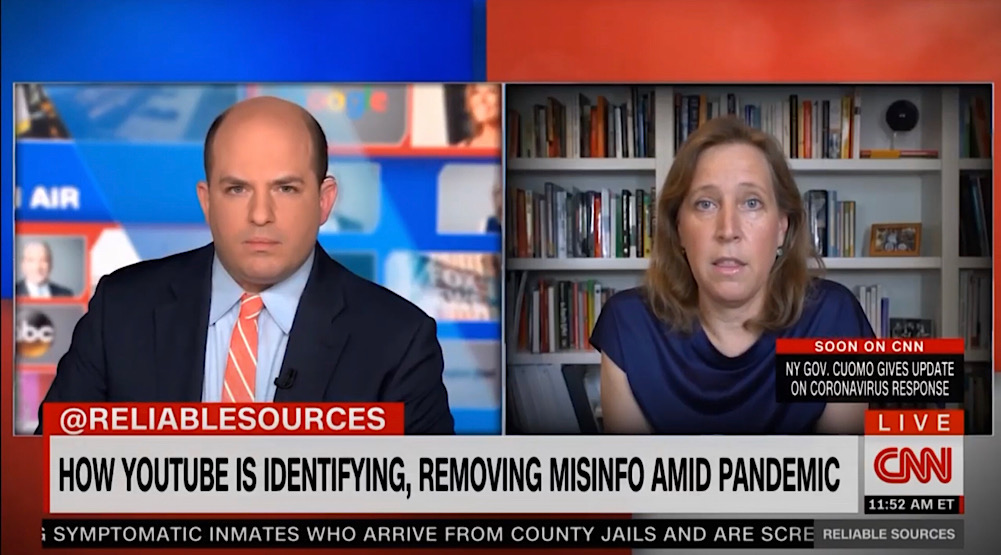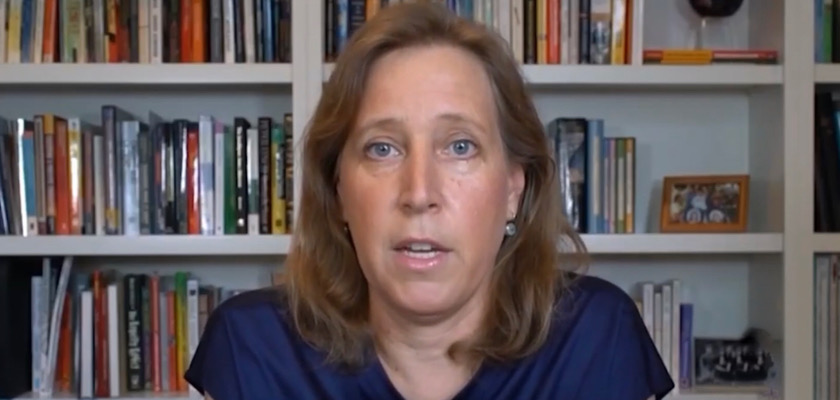In her first interview since the coronavirus lockdown started in the US, YouTube CEO Susan Wojcicki discussed how the platform has responded to the pandemic by removing thousands of videos and sending over 10 billion views to legacy media outlets.
Wojcicki made the comments during an appearance on CNN reporter Brian Stelter’s Reliable Sources podcast where she mostly focused on the platform’s efforts to give people the “right information” and stamp out “misinformation.”
“We also talk about removing information that is problematic,” Wojcicki said. “We’ve had to update our policy numerous times associated with COVID-19.”
Wojcicki then went on to give examples of content that would be a violation of YouTube’s policies, including anything “that is medically unsubstantiated, so people saying like, ‘take vitamin C, take turmeric, like those are/or will cure you.’ Those are the examples of things that would be a violation of our policy.”
When it comes to determining what YouTube classes as “misinformation,” Wojcicki said that “anything that would go against World Health Organization [WHO] recommendations would be a violation of our policy” – the same WHO that amplified China’s propaganda about there being “no evidence of human-to-human transmission” of the coronavirus and criticized Taiwan after a Chinese propaganda campaign on Twitter.
And when it comes to the sources of “right information,” Wojcicki has chosen “authoritative sources” (legacy media outlets) and public health organizations – many of which were downplaying the severity of the coronavirus and telling the public masks are not effective as recently as late March, only to change their rhetoric in April to position the coronavirus as a much more serious threat and recommend wearing masks.

In terms of specific YouTube stats, Wojcicki said that:
- There’s been a 75% increase in video views for authoritative sources since the start of 2020
- Public health organizations have had over 10 billion impressions
- The coronavirus news shelf has been viewed over 10 billion times
In addition to boosting views to these pre-selected sources by giving them preferential treatment in YouTube’s recommendations, promoting them through banners on the site, and giving them prime positioning on the homepage via the coronavirus news shelf, Wojcicki said YouTube is also trying to “get the right voices out there” by arranging interviews between YouTubers and health experts.
Wojcicki also touched on the controversial changes YouTube has made over the last couple of years which have resulted in many creators being demonetized, having their content removed, or even having their entire channels deleted.
The YouTube CEO framed these changes as “progress” and said they’ve created an environment where “if you talk to most people,” it’s “really hard, if not impossible” to find misinformation.
During the second half of the interview, Wojcicki praised YouTube’s use of machines to review and take down content and claimed that “they have been able to continue to be really effective during this time” – a reversal of the platform’s previous sentiment that relying on automated systems during the pandemic will result in more deleted videos, including those that don’t violate community guidelines.










